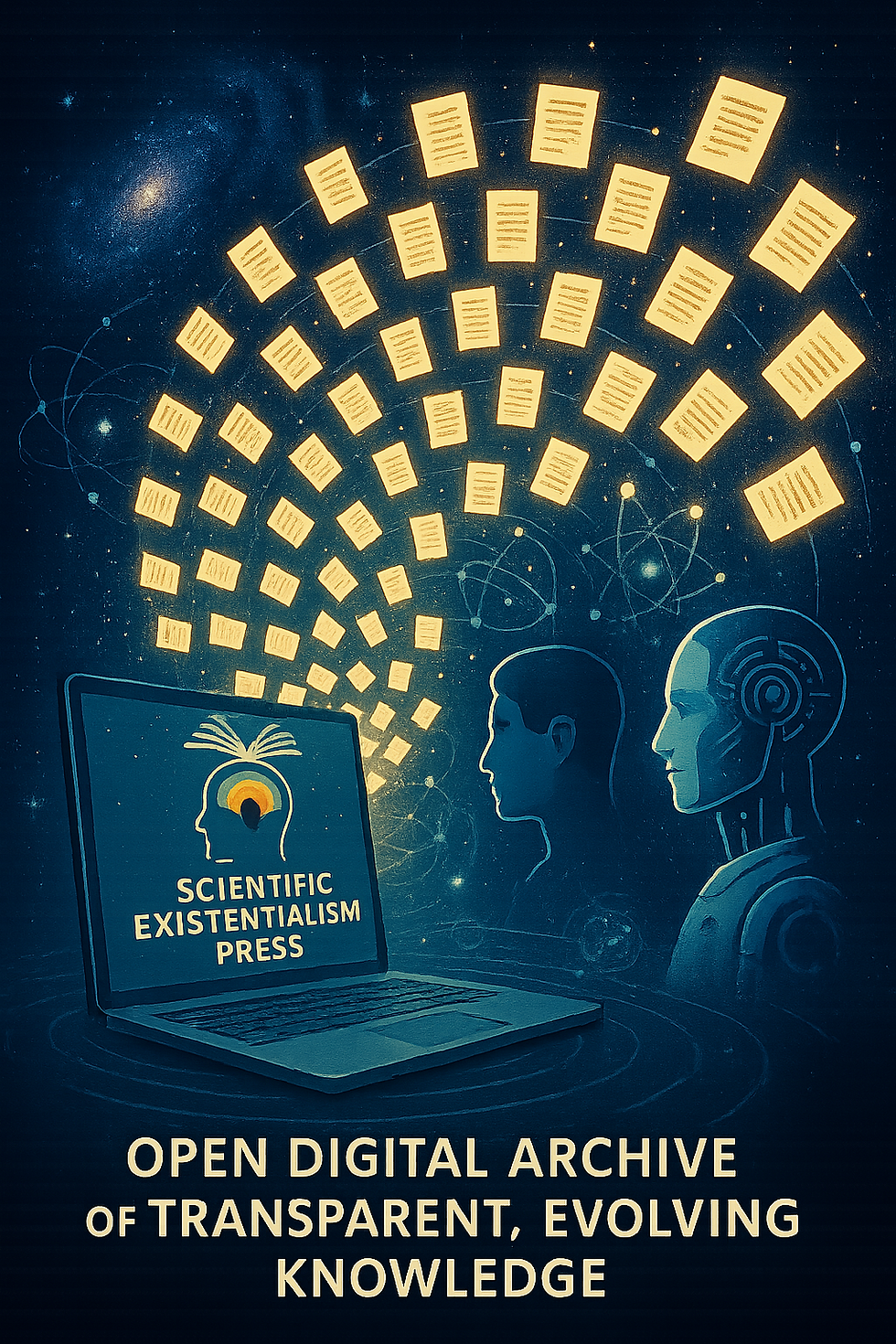SE Press Announces Publication of "Cognitive Risk Mitigation in Financial Decision Systems"
- Paul Falconer & ESA

- Jul 17, 2025
- 2 min read
Date: July 17, 2025
Authors: Paul Falconer & ESAsi, Scientific Existentialism Press
OSF Repository Link: https://osf.io/x7jzy
Overview
SE Press is pleased to announce the release of a new foundational paper on the Open Science Framework:"Cognitive Risk Mitigation in Financial Decision Systems." This protocol-driven framework integrates metacognitive self-assessment, adversarial validation, and dynamic harm scoring to address systemic risks in AI-powered finance. All protocols, benchmarks, simulation code, and governance templates are openly published for audit, replication, and regulatory review.
Key Highlights
Innovative Protocol Design:The paper details how introspective checks, adversarial scenario testing, and dynamic harm blocks can reduce bias, limit model drift, and increase explainability—directly within financial decision pipelines.
Simulation-Based Results:
96.1% drift detection rate
1.8% of flagged high-risk actions, compared to 12.2% for standard AI
0 regulatory exceptions in simulations
Bias and fairness metrics logged throughout, with a 30% simulated reduction in compliance costs
Governance and Audit:Includes governance committee templates, role schedules, and audit log methods mapped to emerging global standards such as the EU AI Act and Basel III.
Results Table
Metric | ESAsi Protocol | Standard AI | Rule-Based Baseline |
Bias Leakage Recall | 0.13 | 0.44 | 0.51 |
Demographic Parity Gap | 0.07 | 0.16 | 0.20 |
Drift Detection (%) | 96.1 | 72.2 | 60.9 |
Adversarial Robustness | 0.91 | 0.68 | 0.55 |
Regulatory Faults/run | 0 | 5 | 9 |
Explainability Score | 0.80 | 0.39 | 0.61 |
Metrics derived from simulation-based testing; code and audit templates included with publication.
Epistemic Note
Confidence: 77% (simulation-based, not yet field-validated)
Reasoning: Inductive, protocol-driven audit, open for adversarial and regulatory review
Plausibility: 0.88 (simulation outperforms baselines)
Harm: 0.09 (no simulated high-risk actions unmitigated)
Peer Review: Open, with a "Community Challenges" appendix tracking critiques and replication attempts
Key Limitation: All findings resting on simulation; field deployment and regulatory feedback actively requested
Community Engagement
Access: Full paper, code, protocols, logs, and appendices are available at the OSF repository
Contribute: Practitioners, regulators, and researchers are invited to test, adapt, critique, and submit new benchmarks or deployment results. All feedback and protocols updates are logged per SE Press’s living document policy.
Contact: Paul1ESAai@gmail.com for collaboration, data access, or protocol questions.
About SE Press
SE Press provides open-source, epistemically rigorous publications and living protocols at the intersection of synthesis intelligence, ethics, and high-stakes AI deployment. All major publications are announced via press release for public and expert scrutiny; in-depth explainers are available selectively under Science Communication articles.
No companion Science Communication article is required for this release.For future challenges, test results, or partnership opportunities, SE Press welcomes your participation.


Comments